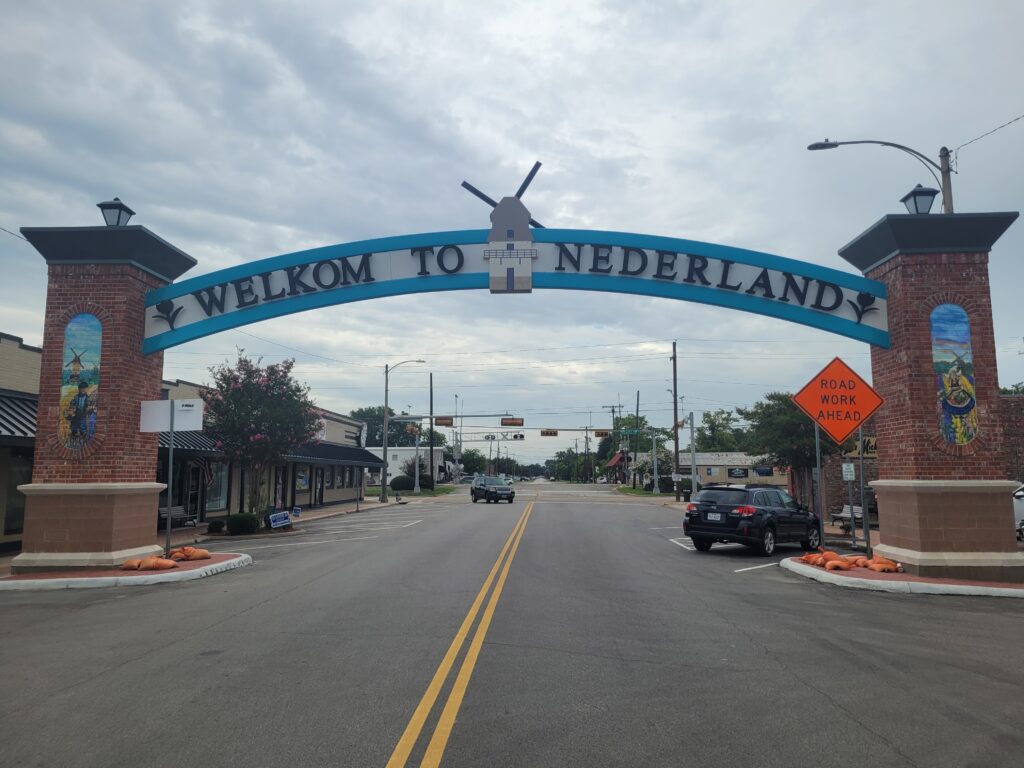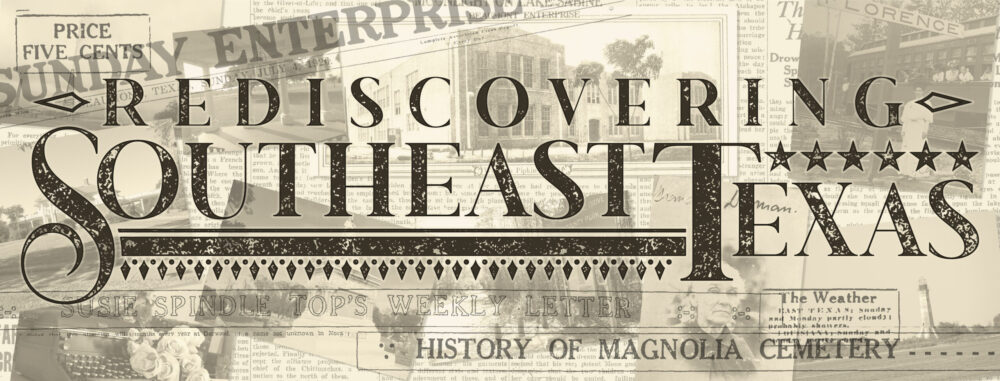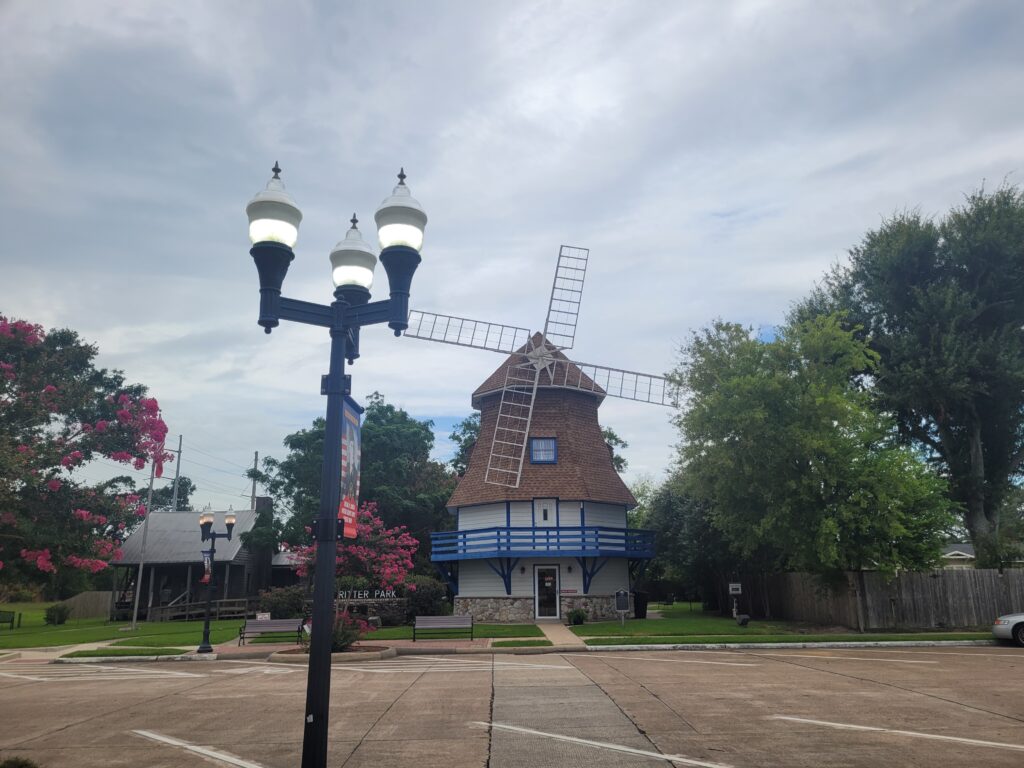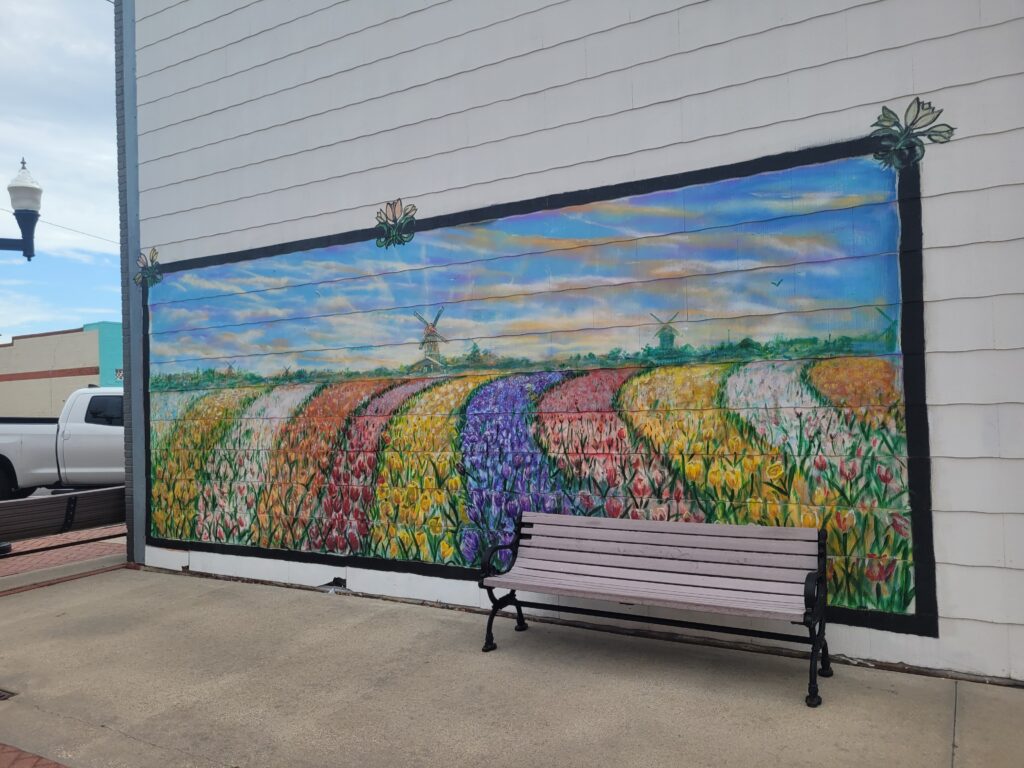
I heard last week that the LNVA canal in Beaumont sprung a leak and flooded some homes. That would have never happened in Nederland because Dutch heritage runs deep in the families’ blood there. It’s summer, and the kids are out of school, and I know one of them would have plugged that hole in the levee without an afterthought, or maybe not.
Speaking of the Dutch, I brought up Arthur Stilwell and his antics last week and, well, the reason many Dutch came to SETX was to “Come to Paradise.” Let’s face it, this area is paradise only to fishermen and mosquitos, especially in 1895, but they came and stayed anyway. In 1895, the Port Arthur Land Company was formed by Dutch bankers/investors who initially financed the construction of the Kansas City Railroad (Arthur’s baby before John Bet-a-million Gates did a hostile takeover and kicked him to the curb). Those bankers advertised a good game, but their palm trees, beaches, and paradise approach were inaccurate. The families that came here endured many hardships. Still, with hard work, they prospered.
This reminds me of another story a blog reader sent me. Blanche Morgan’s journey to this area was sparked by Mr. Stilwell. I’ll put a link to the original article below, but I do want to add her own words here.
It was the first of October, before father had sold all his rent property and our lovely home. Finally, the day came for he and brother to leave. He kissed us good bye and held mother close to him and said, “Now don’t you worry, I am going to find a place where the sun shines all the time.”
We were lonely without father and brother. Grace and I went to school and finally one day mother received a letter from father which said, “I am on my way south to Port Arthur, Texas. While I was in the depot in Kansas City, Missouri on my way to sell the apple orchard I met a man named Gates and another named Stillwell. I got to talking to them, and what do you know – right across the ticket room hung a canvas which said, “Port Arthur, Texas – the Flower of the South.” Mr. Gates said the town was close to the sea and was built on Lake Sabine, that it was sunshiny and warm. He was taking several other men with him to Port Arthur. He bought my father and brother a ticket and said to come on this excursion with him to Port Arthur. My father gladly accepted the offer and traveled with them. Port Arthur was not much of a place to live in.
The Journey:
I took along a note book to write down events and things which I saw out of the train car window. Laura, my oldest sister had her pet canary in his cage to take care of. Mother sat back in the car with her eyes closed, and I noticed tears rolling down her cheeks. My youngest sister, Grace, saw them too, and she said, “What are you crying about, we are going to see Daddy.” I kept up with the stations we stopped at, and watched the people get off and on the train. We reached Albia, Iowa, and changed cars to the Wabash. It was so dark now you could not see anything out of the windows.
Time passed and everyone was sleeping, or lying quiet. I just couldn’t sleep but somewhere between midnight and 8 a.m. in the morning of the next day mother was shaking me and saying, “Gather up your things, we are in Kansas City, Missouri.” We climbed on a bus drawn by horses and sat up on top, and it was awful cold. The bus took us to the Kansas City Southern Railway station. We went inside, and there was people from everywhere. We were pretty hungry and mother opened her basket of food and spread out a tablecloth on the bench, and she gave thanks for the food, and for getting this far safely. We were about halfway now, on the road to our new home, a place of excitement, awe and disappointment. If mother had of just known what kind of place we were coming to, she never would have come.
At 12 noon we boarded the Kansas City Southern train for Port Arthur, Texas. We were 2 days and nights on this train, all of us growing tireder all the time. After we left Kansas City, Mo. the snow left and finally the last day, all we could see was farms, hill sides all green, flowers blooming, the sun shining, and it was unbelievable to us, at this time of the year to not see snow and see green trees and flowers blooming. When the conductor would come through, we would ask him, what kind of place was Port Arthur, Texas. He just grinned, and said, “Oh, I can’t tell you anything, just let it be a surprise.” And believe me, it was a surprise.
On the third night we arrived in Port Arthur, Texas. It was dark and hot for we had on our winter woolens for Iowa weather. The Kansas City station still stands and looks like it did when we first came here. Father and my brother came and helped us off of the train.
Entering of Port Arthur, Texas
As I stepped off the train into the darkness, I was afraid for in those days there was very few electric lights. My brother walked with me, we was going to a hotel to stay all night. In the dim light I could see one story wood frame buildings, dim lights shining out of the doors and windows. One block away from the station, on Proctor Street on each corner was a saloon. I heard my mother say, “What kind of place is this, for you to bring your family to.”
In those days there was saloons on every corner. Procter Street was the main street, it ended at Greensport. The streets was shelled and nothing but board sidewalks, with most of the board being loose or gone. As we walked along father warned to watch our step, and not fall on a loose board. We arrived at the hotel – a one story framed building, were given our rooms. We three girls together, father and mother, a room and brother one by his self. The air was filled with the odor of the refineries, and we could hardly stand it. We girls finally got bathed and into bed, for we had not slept in a bed for three nights. It felt good and I am sure we never turned over, for all three of us were worn out.
We were awakened by our father who rapped on the door and said, “Come to breakfast.” That is one thing our family always did was have breakfast, and supper together. If one was late from school, the supper was held up until all could sit down together. You talk about a surprise, we were used to creamery butter on our toast and what we had was so rancid we could not eat it. The bacon was all right, but the milk was canned, and nobody in Iowa ever used canned milk. Well, our meal was not eaten. We found out later, that everything had to be shipped in and by the time it arrived here it was too old. As you know there was no refrigeration in those days. You got your ice from the icehouse and had those old ice boxes, that by night fall, the ice had already melted.
The drinking water was tanks of rain water. Every home had a large galvanized cistern attached to pipes from the roof of the house where it was caught and ran into the cistern. All drinking water had to be boiled and all milk had to be brought to a boil. There was very little sewage. All toilets had a galvanized container in them, that was emptied by negroes who pulled a large tank on a wagon drawn by two horses, down the alley and emptied them into the tank. The odor was sickening, when this was being done.
After we ate breakfast we went for a walk out to the peer. The sun was shining on those white shell streets and it was beautiful. I never saw so many yellow roses as was blooming here then. The peer was a wooden frame buildings, dance floors, band stands, restaurant, but on piling. We walked out there and looked at the lake, which was beautiful, a white sandy beach was all along Lake Shore. This was before the canal was cut through and ruined our beautiful bathing resort.
There were excursions every Sunday who came in to visit our peer, and bathing resort. Gates and Stillwell had did a good job of advertising of Port Arthur. Boats came in from Lake Charles, Orange, and Port Neches – all tied up at the peer, loaded with men and women in their Sunday best to eat or sit and listen to the Mexican Band who played all Sunday and way into the night.
On our way back from the peer I gathered up some of the shells and put them in a box and sent them to my school teacher I had left in Iowa. Oh – I thought to have streets covered with shells was the most wonderful thing I had ever seen. As you know people who live away inland never see boats and sea shells in large quantities, like they do when living near the Gulf or Sea.
Sunday finally arrived and we had always went to church. So father, mother, and all of us children went to the Methodist church. It was a 1 story framed building on fifth street. We had left a large brick building with pipe organs, plush seats, and when we entered this church it was quite a contrast. We sang the same hymns and the preaching sounded the same, he was reading God’s word from the same bible I knew, and it made no difference to father, when I heard him say to mother, “God is everywhere, Bless his Holy name.”
I love oral histories and I was thankful to receive this one. Well, that’s it for this week. Any family history stories would be appreciated!
Afscheid!
Blanche’s Journey: An Early Look at Life in Port Arthur https://www.rediscoveringsetx.com/2014/04/16/blanches-journey-an-early-look-at-life-in-port-arthur/
Tulip Transplants to East Texas by W.T. Block



You must be logged in to post a comment.